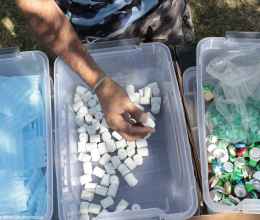DENVER – The Larimer County District Court ruled that the City of Fort Collins violated the Constitution when it prosecuted Adam Wiemold, an unhoused Fort Collins man, for sleeping in his vehicle overnight at a designated rest stop when other shelter was not accessible.
“The district court ruled that it violates the Constitution to prosecute people for sleeping outdoors when indoor shelter is not available to them,” said Mark Silverstein, ACLU of Colorado Legal Director. “This is the first appellate ruling in Colorado to adopt the reasoning of an influential and widely-watched 2018 decision of the Ninth Circuit Court of Appeals.”
The ruling reversed the municipal court conviction of Mr. Wiemold, whom Fort Collins prosecuted for violating the City’s “camping” ordinance. That ordinance, frequently deployed against the City’s unhoused residents, forbids sleeping outdoors on public property.
“What this important ruling means is that when shelters are full, cities cannot enforce their anti-camping ordinances,” Silverstein added. “In addition, even if shelters have space, these camping ordinances cannot be enforced against people to whom indoor shelter is unavailable because of personal circumstances.”
The City’s prosecution of Mr. Wiemold began in September 2018, when police carried out an enforcement operation to target overnight sleeping at the Poudre rest area near Interstate 25. Mr. Wiemold, who had been unhoused for about two years, acknowledged that he had slept overnight in his vehicle and received a summons to appear in Fort Collins Municipal Court.
ACLU lawyers, led by Cooperating Attorney Adam Frank, defended Mr. Wiemold and presented extensive evidence in support of a motion to dismiss. Mr. Wiemold worked as a supervisor of the Catholic Charities homeless shelter and shelter policies prohibited him from sleeping there. He also couldn’t stay at the city’s other shelter, the Fort Collins Rescue Mission, because the shelter populations overlapped. His employer prohibited fraternization, and it was also potentially unsafe because people he had to expel from Catholic Charities might be present at the Rescue Mission. In addition, both shelters were full on the night in question.
Despite the evidence that indoor shelter was not available to Mr. Wiemold, the Municipal Court found him guilty of illegal camping. In reversing that conviction on appeal, the Larimer County District Court ruled that the facts showed that indoor shelter was not available to Mr. Wiemold. He was sleeping outdoors out of necessity, not choice, on the night for which he was ticketed.
“As a matter of basic human dignity, it is just wrong to criminalize a homeless person sleeping on public property when they have nowhere else to go,” said ACLU Cooperating Attorney Adam Frank. “Everyone has to sleep. If someone is going through homelessness and can’t access shelter, they have to sleep outside. I am grateful the court recognized that the Eighth Amendment requires cities in Colorado to respect this principle of our shared humanity.”
According to ACLU, the decision in Mr. Wiemold’s case should protect many unhoused people from prosecution, even when homeless shelters have space available. Numerous members of the unhoused community cannot sleep in congregate shelters and have no choice but to sleep outdoors. Couples may find that shelter rules forbid them from sheltering indoors together. People with pets frequently cannot stay at a shelter, nor can people who have more property than the shelter allows. Additionally, some people with mental illness are unable to remain in confined and crowded spaces, and others coping with substance abuse may be banned from shelters altogether. “For people in these situations, indoor shelter is not available and prosecution for sleeping outdoors is cruel and unusual punishment, in violation of the Constitution,” Silverstein said.
For Mr. Wiemold, news of the victory brought personal relief and the hope that other people will not be criminalized like he was for being unhoused.
“It’s great to know that I won’t have to have this on my record based on what I was going through in my life at that time,” Mr. Wiemold said. “I’m happy that this case could potentially help other people who are experiencing homelessness.”

